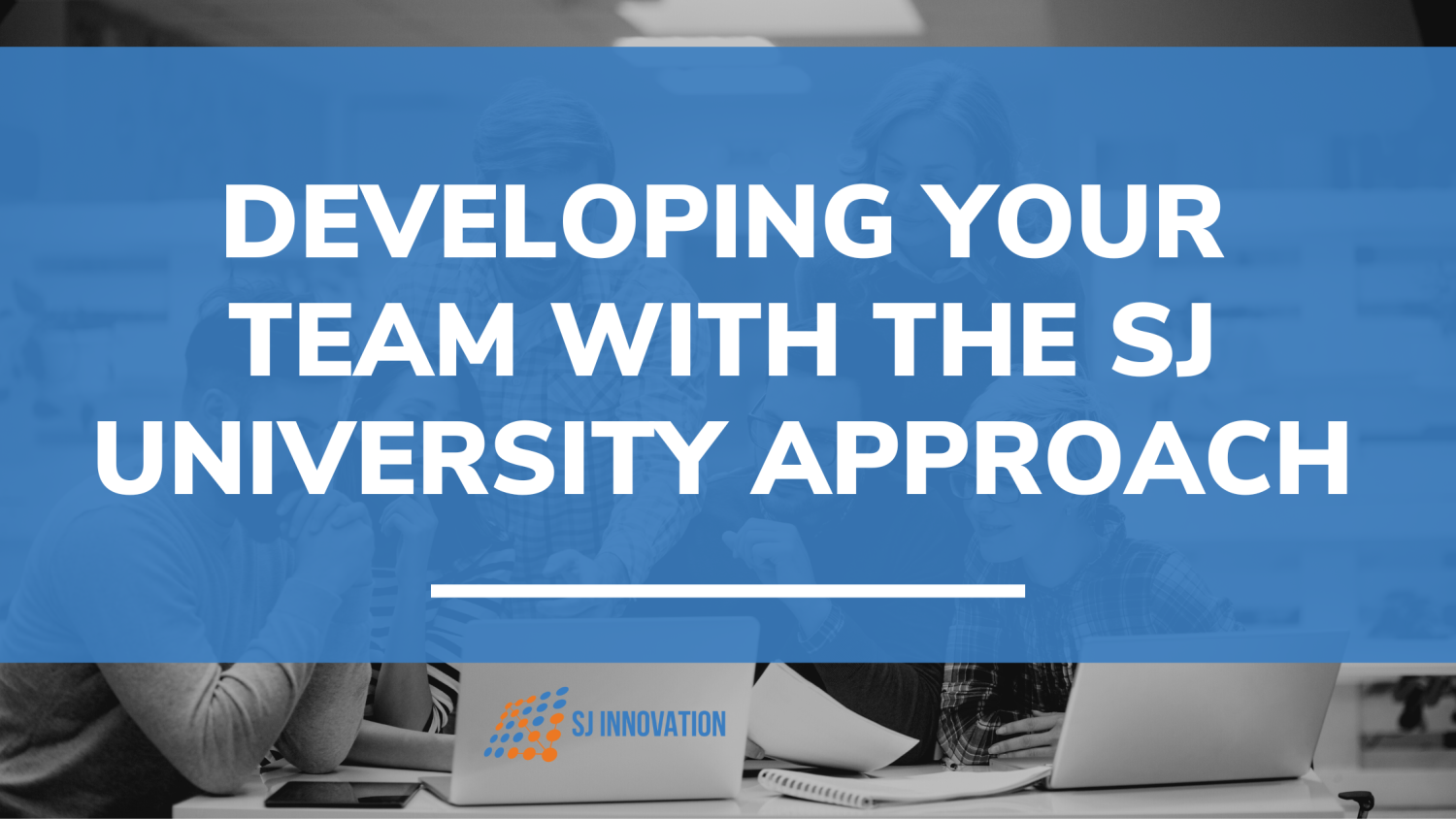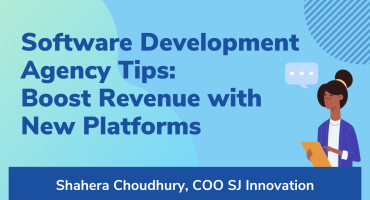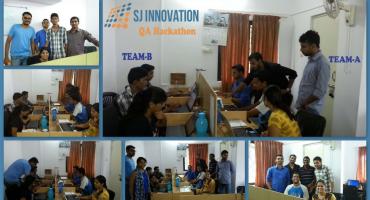Developing Your Team With the SJ University Approach

Keeping your employees growing along a positive trajectory and onboarding new hires successfully is just one of the many challenges involved with running a mid-level software development agency. At SJ Innovation, we realized that the way HR was onboarding new employees was not sufficient. New hires required a greater level of job-specific mentoring than they were being given. We determined an additional three to six months of onboarding was more appropriate.
Regarding existing employees, the question is, "How do you promote employee growth and skill development while keeping them on-task with work-related projects? Sending them to outside trainings is distracting and yields only middling results. You cannot rely on employees to seek out professional development opportunities outside the office either. In response, we created SJ University. SJ University is the result of our own experiential learning; the model is based on trial and error and consists of the following best practices.
New Employee Onboarding
After the initial HR onboarding, the new employee is handed over to a manager for further orientation using the SJ University method complete with its own curriculum. That curriculum consists of a very simple checklist format. That checklist includes:
- Day-one goals
- An assigned mentor or project manager
- Well-defined tasks and responsibilities
- Relevant job tools
- An introduction to work culture
One of the more unique aspects of SJ University's onboarding process is our book assignment. Each new employee must read The Five Dysfunctions of a Team and then complete an assigned task based on each chapter. At the end of the book, they must complete a quiz and give a presentation to a small group of their peers. This exercise is a major focal point in our onboarding curriculum. We have found it to be extremely beneficial in terms of employee learning and retention.
Using this onboarding method, the manager/ mentor becomes the primary liaison between HR and the new employee while giving them a deeper sense of the company and their role within it. Improperly onboarding employees cost the company much more.
Acquiring Technical Knowledge
The new hire is also responsible for taking a skills-based course specific to their role. Employees must have the technical knowledge necessary to be successful. Through experience, we've found that even seasoned veterans who've just transferred into your company need their role to be reinforced. Coding standards differ between each company, as do relative skill levels. This course is more rigorous; for some employees, it takes ten days. For others, it takes three months, but it instills the proper technical skills necessary to succeed in our organization.
Continuous Training
In the past, we gave refresher courses on topics like QA and Drupal. What we found is that the six-month model is insufficient. Through SJ University, we've developed a method for continuous employee development. The great part about continuous development is that it only requires a small commitment to the employee's part. To that effect, we've implemented a mandatory, bi-weekly course called "PDC," or personal development class. We've run this program for more than five years with great success.
Some of our topics include:
- Good working habits
- Mental health
- Efficient communication
- How to make friends and influence others
- Productivity
- How to run an effective meeting.
These are all simple skills that build better employees over time. The time-sink is approximately one hour every two weeks, which is minimal given the return on investment.
Pushing your Existing Employees to the Next Level
We have begun offering courses that go beyond rudimentary learning, featuring topics like leadership skills. These courses are offered to hand-picked employees, and they are treated like actually work projects, complete with a project manager that oversees weekly learning. This approach costs 5-10% of our monthly resources. It might seem like your company will lose out on revenue with this approach, but we've found the opposite to be true; the returns are worth the upfront costs. It does require CEO intervention to foster an educational environment, but once the idea takes ahold in your company culture, it will help your business to scale up more quickly and efficiently.

Software Development Agency Tips: Boost Revenue with New Platforms

Xcode 9 Custom Templates


